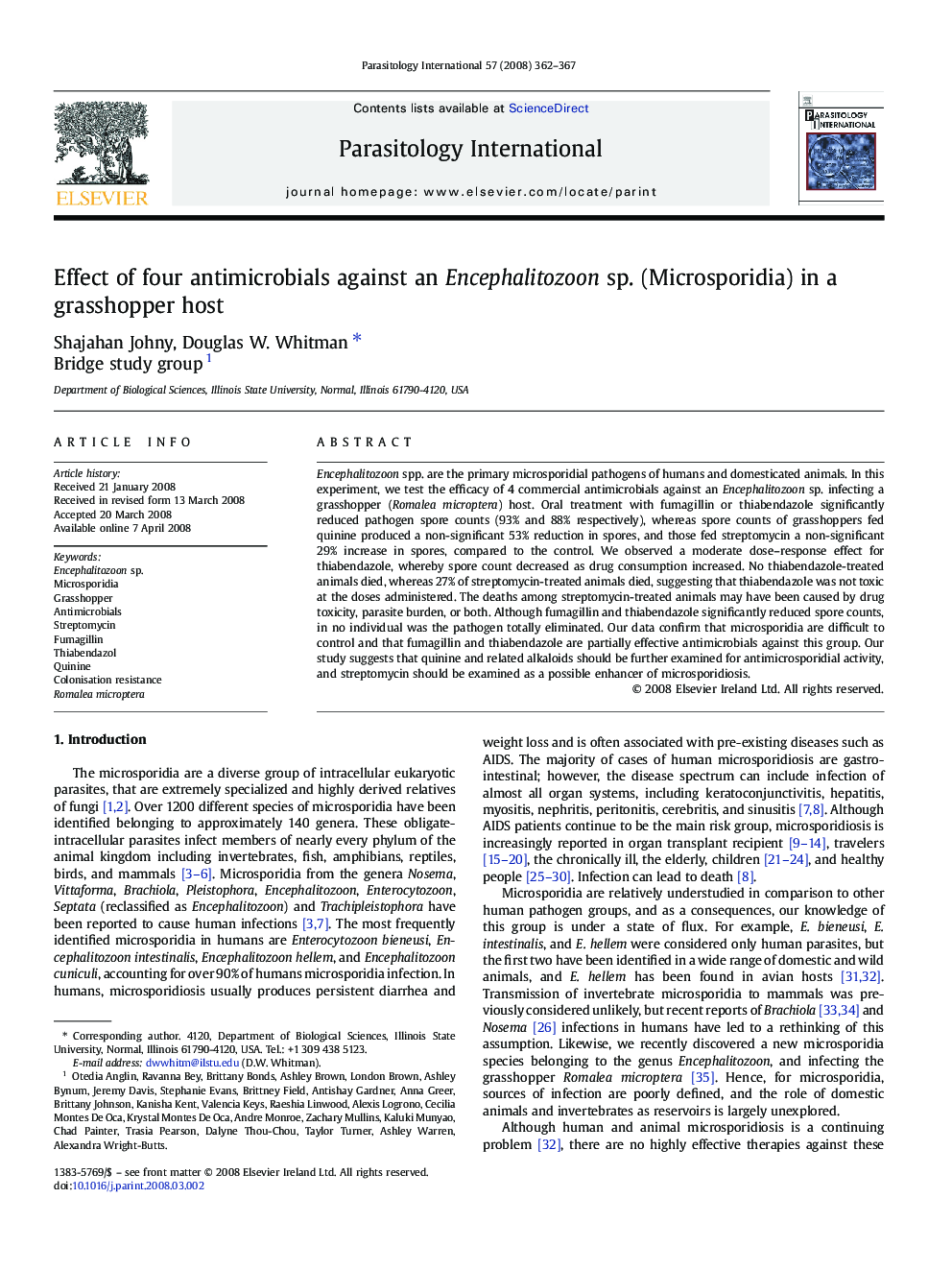| کد مقاله | کد نشریه | سال انتشار | مقاله انگلیسی | نسخه تمام متن |
|---|---|---|---|---|
| 3418386 | 1225511 | 2008 | 6 صفحه PDF | دانلود رایگان |

Encephalitozoon spp. are the primary microsporidial pathogens of humans and domesticated animals. In this experiment, we test the efficacy of 4 commercial antimicrobials against an Encephalitozoon sp. infecting a grasshopper (Romalea microptera) host. Oral treatment with fumagillin or thiabendazole significantly reduced pathogen spore counts (93% and 88% respectively), whereas spore counts of grasshoppers fed quinine produced a non-significant 53% reduction in spores, and those fed streptomycin a non-significant 29% increase in spores, compared to the control. We observed a moderate dose–response effect for thiabendazole, whereby spore count decreased as drug consumption increased. No thiabendazole-treated animals died, whereas 27% of streptomycin-treated animals died, suggesting that thiabendazole was not toxic at the doses administered. The deaths among streptomycin-treated animals may have been caused by drug toxicity, parasite burden, or both. Although fumagillin and thiabendazole significantly reduced spore counts, in no individual was the pathogen totally eliminated. Our data confirm that microsporidia are difficult to control and that fumagillin and thiabendazole are partially effective antimicrobials against this group. Our study suggests that quinine and related alkaloids should be further examined for antimicrosporidial activity, and streptomycin should be examined as a possible enhancer of microsporidiosis.
Journal: Parasitology International - Volume 57, Issue 3, September 2008, Pages 362–367